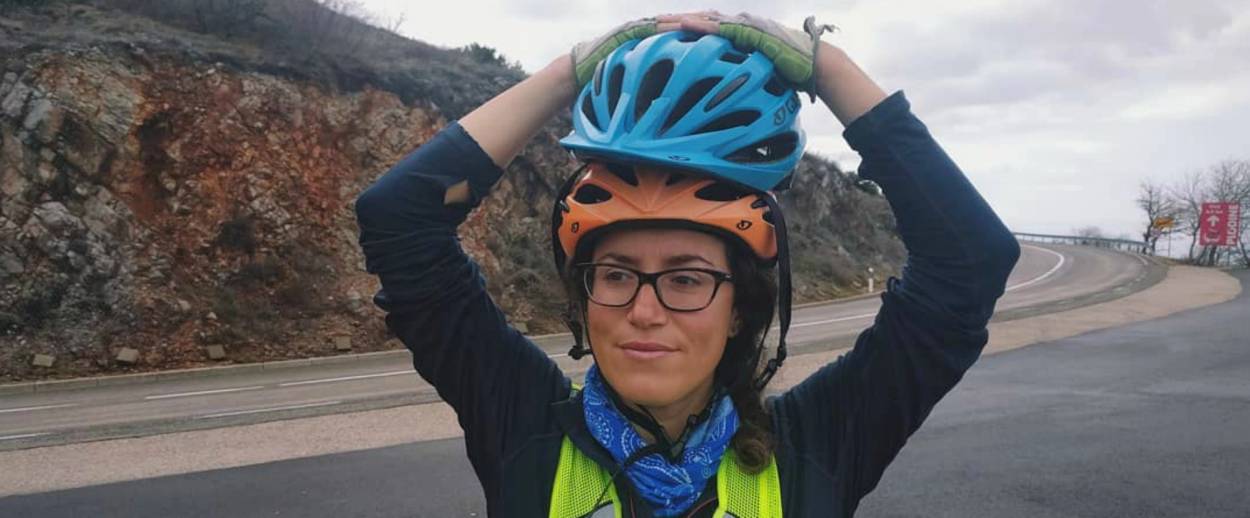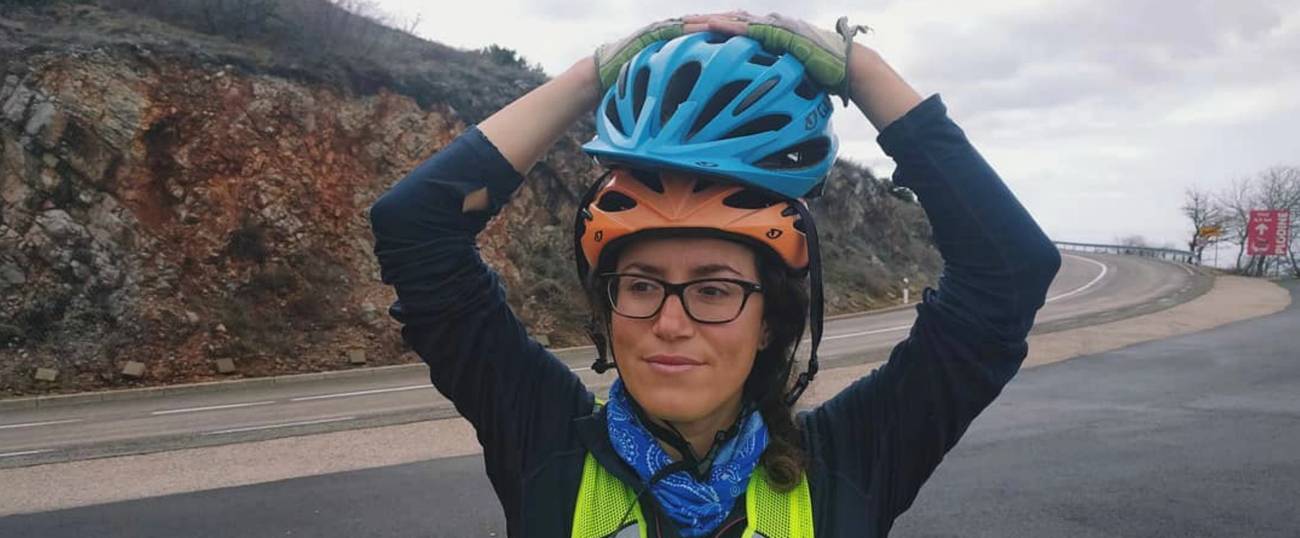Our Evil Problem
Two young Americans set out on a bike ride across the world to prove that people were good. ISIS had other ideas.




Even in a news cycle thick with reasons for despair, the story of Jay Austin and Lauren Geoghegan struck this week like a dark portent, reminding us that the worst may be yet to come.
It’s hard to imagine two humans that better embody the values we hold dear than the pair of 29-year-olds who quit their office jobs, mounted their bikes, and set off to see the world and meet its people. Lauren was a graduate of Georgetown who worked at the university’s admissions office. Jay was an alum as well, an advocate of transparent government and a committed environmentalist who lived in a 140-square-foot, fully sustainable, off-grid house he had designed and built himself. Passionate, compassionate, and mindful, the two captured the spirit that animates our finest institutions, from the Ivy League universities where we train our best and brightest to the newsrooms that craft the stories meant to guide and inform us.
Judging by the blog they kept throughout their journey, a central tenet of Jay and Lauren’s worldview had to do with evil, or the impossibility thereof. “I don’t buy it,” Jay wrote in one post. “Evil is a make-believe concept we’ve invented to deal with the complexities of fellow humans holding values and beliefs and perspectives different than our own—it’s easier to dismiss an opinion as abhorrent than strive to understand it. Badness exists, sure, but even that’s quite rare. By and large, humans are kind. Self-interested sometimes, myopic sometimes, but kind. Generous and wonderful and kind. No greater revelation has come from our journey than this.”
The men in the Daweoo sedan driving behind Lauren and Jay last weekend, just south of Dushanbe, Tajikistan, disagreed. They rammed into the couple with their car, and when the two lay wounded on the ground, ran out and stabbed them with knives, killing them and two other cyclists before recording and releasing a video pledging allegiance to ISIS.
What to make of this heartbreaking story? It’s tempting, as some callous commentators have done, to mock the deceased as naive children who foolishly ignored the warning signs of common sense, but such a simplistic argument fails to address the thornier problem at hand. The environments that helped shape Jay and Lauren fiercely believe, as they did, in the infallibility of comity. It’s every bit a religious urge, with the bike as its icon; the two-wheeled wonder, Jay wrote on the couple’s blog, “may make you more vulnerable, sure, but also more approachable. Humans can be an astoundingly generous species, and whether out of amazement or pity or a mix of both, one is likely to be offered more smiles, more encouraging waves, more curious conversations and genuine offers of a bed or a place to camp when biking than by perhaps any other mode of transport.” That one may also be rammed and stabbed never occurred to the young man, just as it hadn’t occurred to the wise elders who taught him that all conflicts could be resolved with an honest and open conversation and that all people are likely to open their hearts if you open yours first.
Jay and Lauren believed their teachers and their mentors. They believed when they were told that the outbursts of violence around them, at home and abroad, are no more than regrettable but understandable reactions to unfortunate circumstances like poverty or oppression. They believed when they were told that cultural or religious differences didn’t matter, because deep down inside we were all brothers and sisters striving to be kind. They believed like you believe in any other dogma, except that the people who were instructing them in their secular faith insisted that their insights weren’t faith at all but the level-headed observations of a scientific mindset that transcended the narrow-minded bigotry of hateful jerks to see the world as it truly and beautifully is. For this belief, they paid the highest price.
If their memory is to be honored, and if the mindset that led them to their fate is to be curbed, the institutions that produced two such sweet and tragically misguided young people must reckon with the question of evil. Unless we admit that it exists, unless we grapple with its intentions, and unless we prepare for the eventuality of meeting it one day, down the block or halfway across the world, and responding not with platitudes but with swift and deadly force, we’ll remain vulnerable. As we’ve learned from the story of Lauren and Jay, that’s not something we can afford to be.
Liel Leibovitz is editor-at-large for Tablet Magazine and a host of its weekly culture podcast Unorthodox and daily Talmud podcast Take One. He is the editor of Zionism: The Tablet Guide.